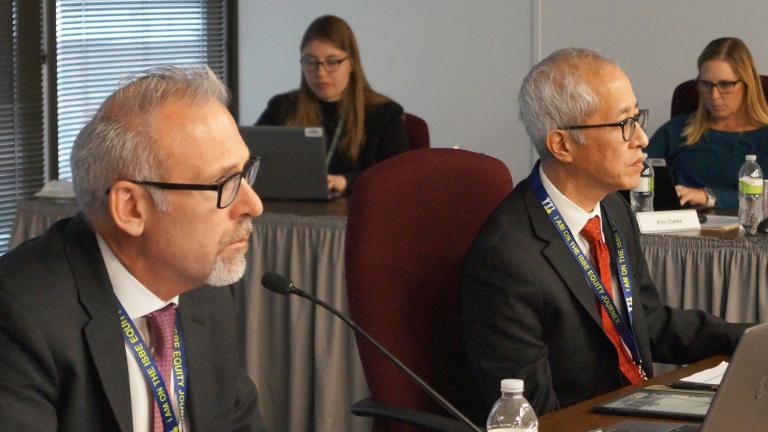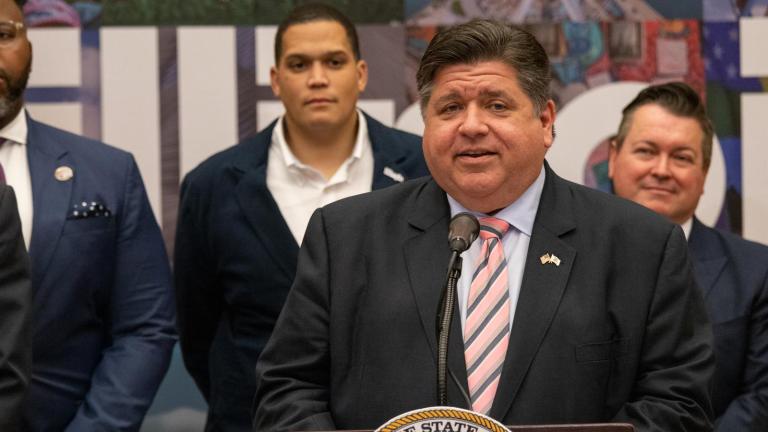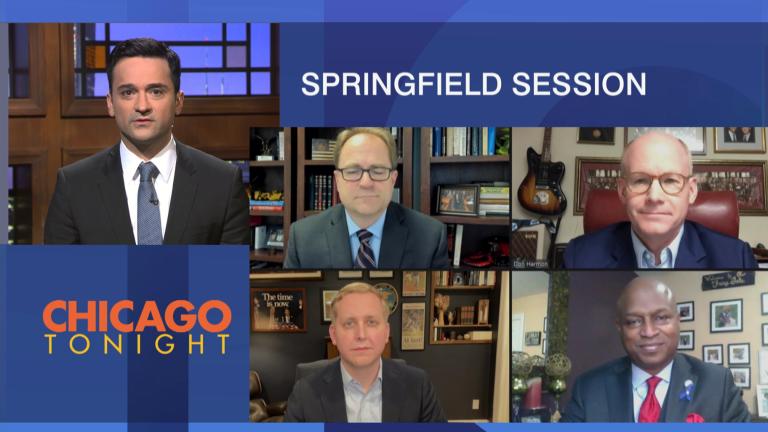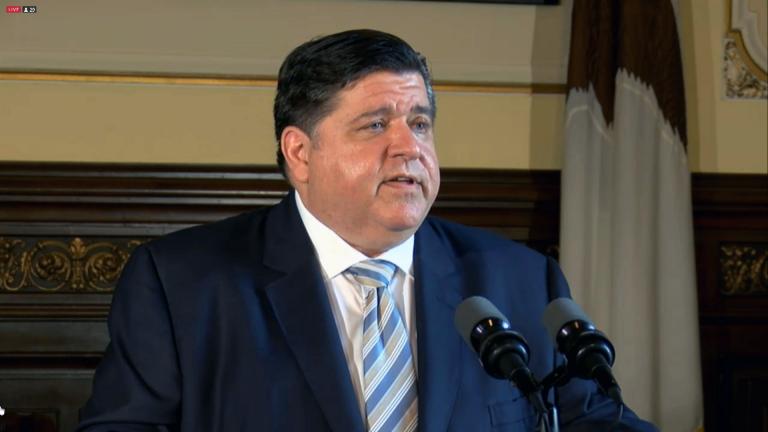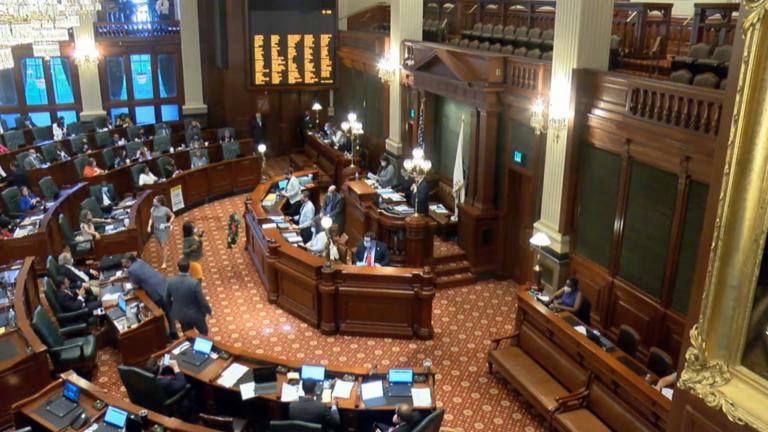Illinois’ lack of budget has caused uncertainty, pain and problems for the past two-and-a-half years.
But a whole new wave of problems will plague the state come August if lawmakers don’t pass a budget by July 1 and Illinois enters a third year without a complete budget.
State senators and representatives returned to the capitol again on Monday, the sixth of 10 daily special sessions called by Gov. Bruce Rauner leading up to the crucial June 30 deadline.
While Illinois has by and large muddled through until this point, July 1 could be the tipping point.
Already, the Illinois Department of Transportation has asked construction contractors to be prepared to stop all work on road projects if a budget isn’t in place when fiscal year 2018 rings in.
Credit ratings agencies have already slashed the state’s rating multiple times during the impasse, and warn that if Illinois enters a third year without a budget, Illinois will be the only state in the nation to reach “junk” status—an embarrassing benchmark that will increase interest rates, and make it harder for the state to climb out of a the fiscal abyss hole leaders have dug.
“We placed the ratings on CreditWatch with negative implications because, in our view, the unrelenting political brinkmanship now poses a threat to the timely payment of the state's core priority payments,” S&P Global Ratings credit analyst Gabriel Petek said in early June.
Illinois’ higher education system also stands to take a marked hit. Public universities and community have seen their budgets slashed; they’ve received no state dollars since January. As a result, the Higher Learning Commission says Illinois universities are seeing declining enrollment, cancelled academic programs, a loss of faculty and higher tuition.
“The continued lack of such funding places the higher education system of Illinois at considerable risk and is injurious to the very students the system purports to serve. As the accrediting agency tasked with assuring quality, I must warn you about the accreditation consequences of the failure to provide sustainable funding for Illinois higher education,” Higher Learning Commission President Barbara Gellman-Danley wrote in a letter. “You have the power to stop this spiral of diminishing quality of higher education in Illinois and the resulting accreditation consequences. I urge you to act immediately to fund higher education in Illinois. You have the future of thousands of Illinois college students in your hands.”
Elementary and high schools have largely been protected throughout the impasse (they were singled out for funding increases the past two years), but as yet no education budget has passed; rather, how Illinois funds schools is one of the central areas of disagreement between Democrats and Republicans. Superintendents of some districts warn that they won’t be able to open in the fall without state funding; others—like Elgin—predict they will be able to make it until Thanksgiving.
Another easy measure of how bad things have gotten is the bill backlog, which has ballooned to nearly $15 billion—all money the state owes to schools, social services and businesses that do everything from supply offices with computer paper to supplying prisons with bread for inmates’ sandwiches, but money the state can’t afford to pay.
Comptroller Susana Mendoza, a Democrat and frequent critic of Gov. Bruce Rauner, says she’s had to “triage” money in the state’s bank account: “Priorities” like debt service, general state aid to schools, pensions, state salaries and payments required by court order come first; the comptroller’s office can also rush payments to organizations that are in danger of going under without an infusion of cash.
Mendoza says that flexibility runs out in August. Then, she says, Illinois runs out of money as tax receipts won’t be enough to cover core expenses.
“We will no longer be able to fully comply will all of the court orders that determine payments in our core priority sectors … this has never happened before,” she said. “I guarantee you, nursing homes will close. I won’t be able to help them. Hospice centers will close. People with disabilities will not be able to be triaged because I won’t even have enough money to make the core priorities that are mandates by courts.”
Mendoza says that “in a best case scenario” Illinois will be operating with a cash shortage of about $185 million.
But a “best case” scenario is unlikely given a lawsuit filed by insurance companies’ managed care organizations contracted to manage Medicaid patients; federal Judge Joan Lefkow has ordered the state to speed up their payments, further strangling the rest of the funding pipeline.
On Monday, one social service agency sent word that it could no longer wait for the state to come through with an appropriation.
Family Focus, an organization that says it serves 17,000 individuals in the Chicago area by helping children reach milestones that allow them to go to school and by working with parents who have been involved with the Department of Children and Family Services, said that it is laying off 100 of its direct service workers—71 percent of its staff—on Friday.
“Families who count on us for critical services and help ensuring their children are ready for pre-school are being left behind. They are our most vulnerable community members,” Family Focus CEO Merri Ex wrote in a letter Monday.
“When state funding is restored, contracts are finalized, and funding is appropriated, we will rehire staff and resume critical programs, but the impact of this gap in services cannot be overstated, and time cannot be rolled back for children being impacted now.”
Family Focus says it is waiting to be paid $2.7 million in state funds for work already provided on the government’s behalf.
Whether legislative leaders and the governor can reach their goal remains to be seen.
House Speaker Michael Madigan on Monday signaled that it’s possible if Rauner is “reasonable.”
Madigan’s leader on budget matters, Rep. Greg Harris, D-Chicago, said that House Democrats are working on “final details” of a budget and revenue plan, though he would not say when it will be finalized or made public.
House Republican Leader Jim Durkin, meanwhile, said he is focused on getting Democrats to agree to a plan that makes workers’ compensation less expensive for businesses, overhauling the state’s underfunded pension systems through changing state employees’ retirement benefits, and freezing local property taxes.
Madigan, Durkin and their Senate counterparts are set to meet again, without Rauner, on Tuesday.
Follow Amanda Vinicky on Twitter: @AmandaVinicky
Related stories:
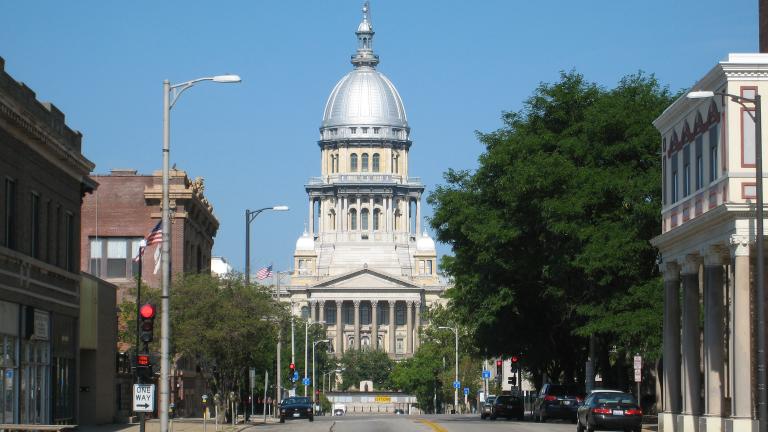 Madigan Introduces New Set of Demands as Preconditions for Budget Deal
Madigan Introduces New Set of Demands as Preconditions for Budget Deal
June 25: As Illinois faces an end-of-month deadline to pass a budget, Illinois House Speaker Michael Madigan has introduced a new set of preconditions to a compromise.
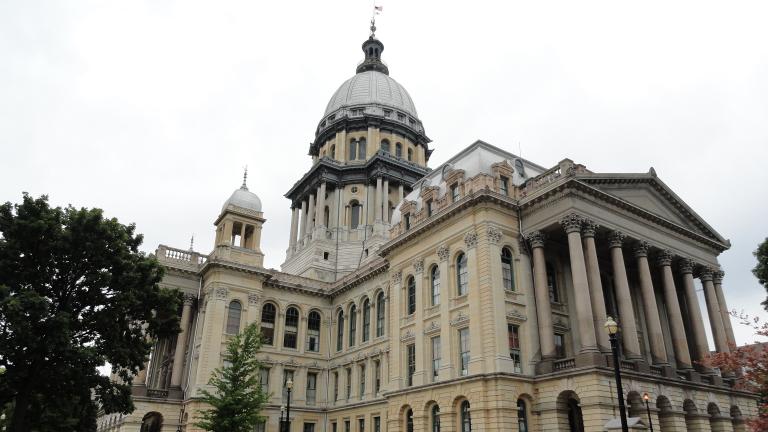 Illinois in ‘Dire Straits’ and Leaders, Governor Can’t Even Agree to Meet
Illinois in ‘Dire Straits’ and Leaders, Governor Can’t Even Agree to Meet
June 23: An updated “doomsday” picture offered by Comptroller Susana Mendoza: Without a budget in place soon, she won’t be able to write checks to pay for the most basic of services come August.
 As End of Fiscal Year Nears, Little Progress in Springfield
As End of Fiscal Year Nears, Little Progress in Springfield
June 22: The end of the fiscal year is a week from Friday. Is Illinois any closer to getting a budget passed by that deadline?

